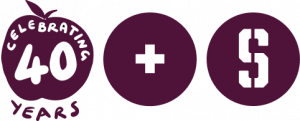I am a writer, a poet, an actor and activist, a spoken word performer, a creative practitioner and facilitator, a feminist, a believer in human rights and kindness. I campaign and yell from roof tops. I decried the cuts and austerity which widened and widens the gap between haves and have nots to unassailable suicide inducing levels. I believe that what makes us unique makes us wonderful. I champion equality.
And yet. I lived with a dirty secret I dared not claim: I am disabled.
In 2001 the world as I knew it collapsed leading to darkened room bed-bound years, walking sticks and wheelchairs. When I emerged from the dark I did so in stealth mode. I hid from those that knew the old me, ashamed of the new me. And when my health grew stronger I took on a job that was always going to be far too much, especially as I did not tell them the adjustments I needed, even while I fought for and made them for others who worked for me.
Of course, I broke. Spectacularly. And I retreated further into a world of denial, shame and non-acceptance.
Did I read about Disability Arts? No.
About this powerful arts movement of campaigning, of political change making, of high quality art making, of fighting for all the people that make up this glorious world of ours to be prominent, seen, valued and respected? No.
Did I know it existed? No.
Why? Now that’s the ultimate question. I accept that my shame did not lead me to wonder and explore. But where were the programmes on television, the films, the plays that represented me? That taught me it was okay to be me? The only disabled characters I saw were those that engendered fear or pity. The message was clear – the mainstream world does not accept, nor want you.
This message was deeply ingrained upon my psyche. How could it not be? Especially now with a government who perpetuates the myth of other, that disabled people are a burden on society, where respect has been cut along with vital benefits and support.
Four years ago, David Clapson died with no food in his stomach, a diabetic who had his benefits stopped because he missed one meeting at the jobcentre and therefore had no money for food, or for electricity for his fridge to keep his insulin cold – next to his body was a stack of CVs. Oh, and by the way, before the Daily Mail vultures begin to circle, having worked for 29 years, he had given up work to care for his elderly mum. These are sanctions imposed by a government whose own website states; “We are ending the something for nothing culture.”
A four year study by the Demos thinktank and Ben Baumberg Geiger shows that it is 53% more likely for a disabled person to have money deducted than a non-disabled person. And this still continues in the face of the National Audit Office’s 2016 report which found NO EVIDENCE THAT SANCTIONS WORK. So therefore, I came, in a completely and utterly scientific manner, to the only conclusion possible: that this is being done for someone’s warped idea of shits and giggles.
Did I want to peer out from my sheltered parapet and declare loudly and proudly who I was and that I was proud to be a disabled woman? No. I didn’t even like the word. Disabled. Disempowering.
So, what changed? In October 2017 I gained a place on the Greater Tees Practitioner Training Programme delivered by ARC in Stockton which was designed to give practitioners the skills and tools to work with socially excluded communities. The first session and workshop was lead by Vici Wreford-Sinnott, a dynamic professional theatre director, playwright and equality strategist who has worked in theatre and Disability Arts for 26 years. She is also the creative lead and co-founder of ARC’s strategic disabled-led arts programme, Cultural Shift.
My mind was officially blown. Here was a woman who not only accepted who she was, but championed this acceptance for others, makes theatre that is accessible, inclusive and hauntingly beautiful and did all this with a complete and utter arse-kicking attitude. I was in awe.
As the course progressed I became more vocal about what I needed to succeed. No one recoiled. The support and kindness I received made my heart full, and then broke it for all those unnecessary years I remained hidden. I didn’t lose work. The more open I was, the more it came.
Vici took the time to talk with me, listen to my fears, to challenge them. She guided and nurtured me. With her support I began to work with Intro to Theatre, a company of disabled-lead learning disabled actors based at ARC.
And I began to write. And write. And read and learn. I began to perform the words I had been too scared to utter. And because the voice was authentic and it was true, people listened. It began to snowball.
I began to soar.
That is why events like DiVerse in Stockton are so valuable, it gives a space for other voices to be heard. And if other voices have a space to be heard, then people like me can hear them.
This is not the end of my story, nor the end of fear and doubt, but it is the beginning of proudly standing up and saying: I am Lisette Auton, spoken word performer, writer, feminist and disabled artist.
And that’s what I choose to hold on to
amongst the inequality, the austerity, the indignity
is the quiet kindness and solidarity,
that’s when I feel free.
First Published March 2018
